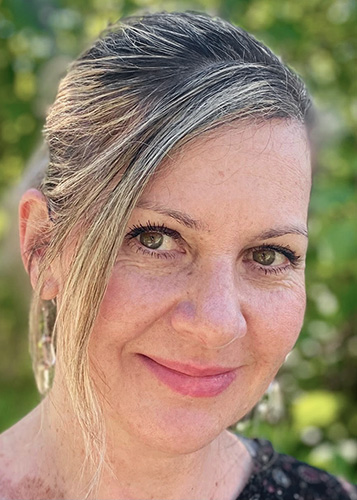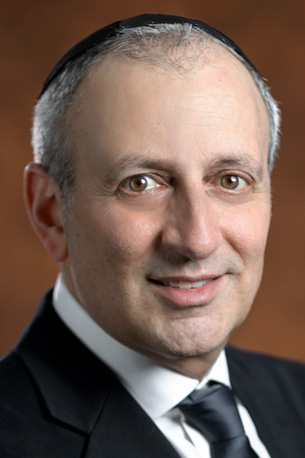

 AFRINIC-The Regional Internet Registry for Africa has finally successfully conducted its 2025 Board of Directors Elections! The elections were held from September 10 to 12, 2025. This fresh leadership marks the beginning of a new era after years of turbulence and uncertainty for the organization. more
AFRINIC-The Regional Internet Registry for Africa has finally successfully conducted its 2025 Board of Directors Elections! The elections were held from September 10 to 12, 2025. This fresh leadership marks the beginning of a new era after years of turbulence and uncertainty for the organization. more
 In October 2023, the Number Resource Organization initiated a process to undertake a significant update to Internet Coordination Policy 2 (ICP-2); the policy which specifies the criteria for establishing new Regional Internet Registries (RIRs). The Address Supporting Organization Address Council (ASO AC) has been tasked with managing the revision process, emphasizing community engagement and transparency. more
In October 2023, the Number Resource Organization initiated a process to undertake a significant update to Internet Coordination Policy 2 (ICP-2); the policy which specifies the criteria for establishing new Regional Internet Registries (RIRs). The Address Supporting Organization Address Council (ASO AC) has been tasked with managing the revision process, emphasizing community engagement and transparency. more
 The Registration Operations Workshop (ROW) was conceived as an informal industry conference that would provide a forum for discussion of the technical aspects of registration operations in the domain name system and IP addressing. The ROW series is being co-sponsored by Verisign and ICANN and organized by Cofomo, and we are looking forward to an engaging set of talks, panel discussions, and conversations with individuals involved with the operation of domain name registrations systems. more
The Registration Operations Workshop (ROW) was conceived as an informal industry conference that would provide a forum for discussion of the technical aspects of registration operations in the domain name system and IP addressing. The ROW series is being co-sponsored by Verisign and ICANN and organized by Cofomo, and we are looking forward to an engaging set of talks, panel discussions, and conversations with individuals involved with the operation of domain name registrations systems. more
 The Registration Operations Workshop (ROW) was conceived as an informal industry conference that would provide a forum for discussion of the technical aspects of registration operations in the domain name system and IP addressing. The 11th ROW will be held online on Tuesday, June 21st, 2022 at 13h00 -- 16h00 UTC. The discussion topics will be... more
The Registration Operations Workshop (ROW) was conceived as an informal industry conference that would provide a forum for discussion of the technical aspects of registration operations in the domain name system and IP addressing. The 11th ROW will be held online on Tuesday, June 21st, 2022 at 13h00 -- 16h00 UTC. The discussion topics will be... more
 The Registration Operations Workshop (ROW) was conceived as an informal industry conference that would provide a forum for discussion of the technical aspects of registration operations in the domain name system and IP addressing. The 10th ROW will be held online on Tuesday, June 8th, 2021 at 13h00-17h00 UTC. Click to learn more about the discussion topics and registration details. more
The Registration Operations Workshop (ROW) was conceived as an informal industry conference that would provide a forum for discussion of the technical aspects of registration operations in the domain name system and IP addressing. The 10th ROW will be held online on Tuesday, June 8th, 2021 at 13h00-17h00 UTC. Click to learn more about the discussion topics and registration details. more
 In a publication released on October 2, 2020, RIPE NCC reported its first seizure of IPv4 registration rights pursuant to a Dutch court order. Pursuant to the order, RIPE NCC effectuated a transfer of the IP Addresses from the liquidating debtor to its creditor. Although these IP Addresses could not be owned, they were apparently not legacy. Thus, they conferred no "property rights" - the registration rights were deemed an enforceable right that has value and were to be utilized towards satisfaction of a judgment. more
In a publication released on October 2, 2020, RIPE NCC reported its first seizure of IPv4 registration rights pursuant to a Dutch court order. Pursuant to the order, RIPE NCC effectuated a transfer of the IP Addresses from the liquidating debtor to its creditor. Although these IP Addresses could not be owned, they were apparently not legacy. Thus, they conferred no "property rights" - the registration rights were deemed an enforceable right that has value and were to be utilized towards satisfaction of a judgment. more
The organization responsible for providing global Internet resources, including addresses in Europe, the Middle East and parts of Central Asia has announced that as of today, 25 November 2019, it has run out of IPv4 addresses. more
 For anyone wondering how Internet development is evolving in the Caribbean, an international conference held in Bridgetown, Barbados, hosted by the American Registry for Internet Numbers (ARIN), provided more than a few positive clues. The second annual ARIN Caribbean Forum attracted Internet policymakers, computer networking and cybersecurity experts and law enforcement officials from across the Caribbean, North America and Europe for high-level talks under the theme "Caribbean priorities for the global Internet." more
For anyone wondering how Internet development is evolving in the Caribbean, an international conference held in Bridgetown, Barbados, hosted by the American Registry for Internet Numbers (ARIN), provided more than a few positive clues. The second annual ARIN Caribbean Forum attracted Internet policymakers, computer networking and cybersecurity experts and law enforcement officials from across the Caribbean, North America and Europe for high-level talks under the theme "Caribbean priorities for the global Internet." more
 Developments in the Caribbean digital space are fuelling initiatives to strengthen the Internet infrastructure in the region. In Guadeloupe, a recent agreement among three Internet service providers has cleared the way for the island to establish its first Internet exchange point. Commonly called an IX or an IXP, an Internet exchange point is a critical element of Internet infrastructure used to interconnect networks and deliver data traffic between them. more
Developments in the Caribbean digital space are fuelling initiatives to strengthen the Internet infrastructure in the region. In Guadeloupe, a recent agreement among three Internet service providers has cleared the way for the island to establish its first Internet exchange point. Commonly called an IX or an IXP, an Internet exchange point is a critical element of Internet infrastructure used to interconnect networks and deliver data traffic between them. more
 Three Caribbean candidates -- Peter Harrison, Alicia Trotman and Kerrie-Ann Richards -- have been elected to leadership roles at the American Registry of Internet Numbers (ARIN). ARIN is one of five Internet registries worldwide that coordinate the distribution and administration of number resources. The registry serves the United States, Canada and several territories in the Caribbean. more
Three Caribbean candidates -- Peter Harrison, Alicia Trotman and Kerrie-Ann Richards -- have been elected to leadership roles at the American Registry of Internet Numbers (ARIN). ARIN is one of five Internet registries worldwide that coordinate the distribution and administration of number resources. The registry serves the United States, Canada and several territories in the Caribbean. more
 The Latin American and Caribbean Internet Registry (LACNIC) and Google will hold a series of workshops next month as part of Internet Week Trinidad and Tobago, an event intended to advance the Internet development agenda of the wider region. The workshops are part of a project through which LACNIC and Google seek to strengthen digital markets in Central American and Caribbean countries. This joint project seeks to enhance local connectivity and strengthen the ecosystem for entrepreneurs. more
The Latin American and Caribbean Internet Registry (LACNIC) and Google will hold a series of workshops next month as part of Internet Week Trinidad and Tobago, an event intended to advance the Internet development agenda of the wider region. The workshops are part of a project through which LACNIC and Google seek to strengthen digital markets in Central American and Caribbean countries. This joint project seeks to enhance local connectivity and strengthen the ecosystem for entrepreneurs. more
The eighth RIPE NCC hackathon takes on the Quantum Internet! The hackathon will be held during the weekend before RIPE 77 in Amsterdam, and is co-organised by QuTech and TU Delft, along with the RIPE NCC. We're bringing together network operators, quantum networking researchers, students, hackers, software developers and artists, to imagine and build the tools for the future Internet. more
 Regenie Fräser, the former Secretary General of a regional trade association, has been selected to serve a one-year term on the board of trustees of the American Registry of Internet Numbers (ARIN). Fraser's appointment makes her the first person from the Caribbean and the first non-white person to serve on the ARIN board. ARIN is one of five registries worldwide that coordinate Internet number resources. more
Regenie Fräser, the former Secretary General of a regional trade association, has been selected to serve a one-year term on the board of trustees of the American Registry of Internet Numbers (ARIN). Fraser's appointment makes her the first person from the Caribbean and the first non-white person to serve on the ARIN board. ARIN is one of five registries worldwide that coordinate Internet number resources. more
 The dream of a faster, safer, more affordable Internet in the Caribbean sometimes seems elusive. One group of Internet pioneers is taking steps to make it a reality. The Caribbean Peering and Interconnection Forum, or simply CarPIF, is an annual event that brings together the people responsible for delivering Internet services to the region, including internet service providers, internet exchange point operators, content delivery networks, data centre managers and other computer network professionals. more
The dream of a faster, safer, more affordable Internet in the Caribbean sometimes seems elusive. One group of Internet pioneers is taking steps to make it a reality. The Caribbean Peering and Interconnection Forum, or simply CarPIF, is an annual event that brings together the people responsible for delivering Internet services to the region, including internet service providers, internet exchange point operators, content delivery networks, data centre managers and other computer network professionals. more
 For some time, the board of the American Registry for Internet Numbers (ARIN) has expressed a desire to have greater diversity across its leadership structures. Finally, steps are being taken to have representation that better reflects the diversity of the ARIN community... since ARIN was founded on April 18, 1997, two of its main oversight structures -- the Board of Trustees and Advisory Council -- have only been populated with persons from North America. At last, that changes. more
For some time, the board of the American Registry for Internet Numbers (ARIN) has expressed a desire to have greater diversity across its leadership structures. Finally, steps are being taken to have representation that better reflects the diversity of the ARIN community... since ARIN was founded on April 18, 1997, two of its main oversight structures -- the Board of Trustees and Advisory Council -- have only been populated with persons from North America. At last, that changes. more